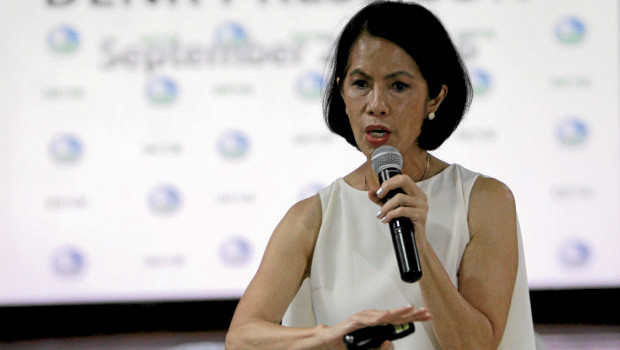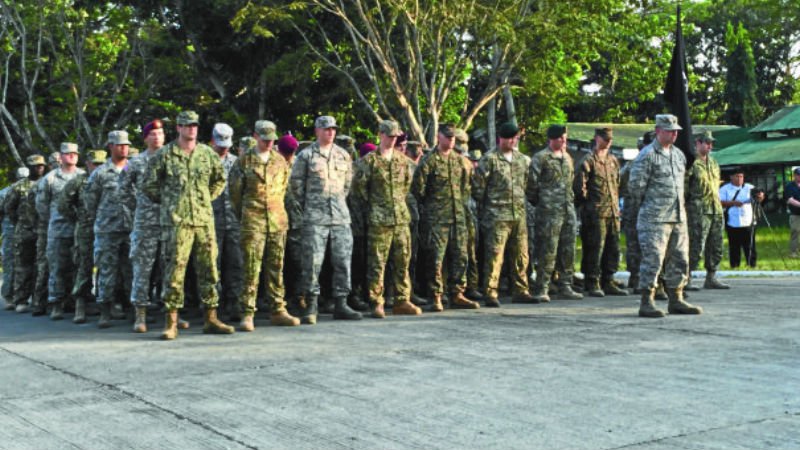Philippines president, driven by a sense of grievance over colonial history and perceived slights, threatens to undo a vital American relationship in Asia
“When you pick a fight with him, he will not let it pass—he will deal with you,” says Jesus Dureza, a former classmate who serves in the Duterte cabinet. “This is very deep in him.”
His anti-U.S. rhetoric flared last month when he declared
Mr. Obama shouldn’t lecture him on human rights. In an aside directed at no
one, he used an exclamation of frustration meaning “son of a whore,” which some
in the international press interpreted as a dig at the U.S. Laos
In recent weeks, Mr. Duterte has canceled U.S.-Philippine
military exercises. He said he might annul a 2014 U.S.-Philippines defense
pact, a key aspect of Mr. Obama’s “Asian pivot,” that lets the U.S. Russia and China
In Beijing , he signed
business deals with President Xi Jinping, who promised the Philippines
“I’ve realigned myself in your ideological flow,” Mr.
Duterte said in the Beijing speech, “and maybe I will also go to Russia to talk
to Putin and tell him that there are three of us against the world—China,
Philippines and Russia.”
Mr. Duterte also set aside his country’s territorial
disputes with Beijing in the South China Sea, where China controls a contested
reef, Scarborough Shoal, about 125 miles off the Philippine coast, that it took
over in 2012.
Souring relations could leave the U.S. with fewer options
for expanding its military presence in the South China Sea—a resource-rich and
strategically important area claimed almost entirely by China, and in part by
several Southeast Asian states—and make it harder to portray itself as a guarantor
of regional security, as it has done since World War II.
Before Mr. Duterte’s talk of “separation,” U.S.
Philippine defense officials have said publicly they are
largely in the dark about Mr. Duterte’s plans. They nonetheless make clear he
intends to forge a more independent foreign policy than his predecessor,
Benigno Aquino III.
Mr. Duterte is “trying to liberate us” from a “shackling
dependency” on America, wrote Foreign Affairs Secretary Perfecto Yasay Jr. in a
Facebook post this month. Filipinos are treated as “little brown brothers” of
the U.S.
Mr. Duterte’s office didn’t respond to requests for comment
for this article. Publicly, he has faulted Washington
for failing to halt China ’s
territorial grabs and for refusing to give explicit guarantees it would protect
all Philippine territory, including remote possessions in the South
China Sea .
Mr. Duterte’s nationalism, displayed in his angry reaction
to Mr. Obama’s admonishments, echoes sentiments common among left-leaning
Filipinos that America Philippines passed into the hands of what many
left-leaning politicians such as Mr. Duterte regarded as a corrupt Manila elite
installed by Washington
History’s scars
The son of a provincial governor on Mindanao, Mr. Duterte
grew up in a troubled region with ample cause to resent both Manila
and Washington Spain U.S. took over, Mindanao ’s sultanates put up stiff resistance.
For the people Mindanao, the colonial experience left scars
and a hatred of perceived oppression and disrespect, says Ms. Duterte, the
president’s sister, who lives in Davao
City , Mindanao ’s
largest. She says their grandmother, a Muslim, helped Mr. Duterte come to
believe that Washington
He was a rebel from the start, say friends and family. As a
boy, he was expelled from his strait-laced Jesuit school for squirting blue ink
on a priest, recalls Mr. Dureza. At high school he was a brawler. “He always
had that hair-trigger temper,” says Carlos Dominguez III, a childhood friend
and now Mr. Duterte’s finance secretary.
He staggered into the family home one night, clutching a
stab wound from a street fight, his sister says. He later shot a college
classmate in the leg in reprisal for an attack on a friend, Mr. Dureza says,
noting that the other man recovered and Mr. Duterte faced no legal blowback.
At university in Manila , he
studied politics under Jose Maria Sison, who later founded the Communist Party
of the Philippines
The Philippine communist party is listed as a foreign
terrorist organization by the U.S. State Department. Mr. Duterte has said he
sympathizes with the party, which he never joined.
His views on law and order coalesced in the 1980s when
violent criminal gangs terrorized Davao
City Davao City
Hall
Mr. Duterte worked through the mid-1980s as a city
prosecutor, having surprised his family by finishing law school, his sister
says. The country was descending into chaos, ruled by U.S.-backed strongman
Ferdinand Marcos.
After a “People Power” revolution ousted Mr. Marcos in 1986,
the criminal-justice system deteriorated, with wealthy Filipinos often escaping
prosecution through bribes while other cases could drag on for years. Mr.
Duterte came to see the legal process as “something that can be delayed or
derailed,” Mr. Dureza says, with direct action the only way to effect change.
Elected mayor of Davao
City in 1988, he adopted a strict
approach that his sister, Ms. Duterte, says was modeled on Singapore
He declared a crackdown on suspected drug dealers, and
vigilante death squads in Davao
‘The Punisher’
His measures were popular, and locals gave him the nickname
“The Punisher.” He served seven terms, with interruptions for term limits,
until 2016.
Along the way, Mr. Duterte nursed grievances over perceived U.S. slights, including a 2002 incident in which
an American slipped out of the country under mysterious circumstances after a
bomb exploded in his Davao
City
The U.S.
embassy in Manila says: “We took no action
beyond providing routine consular services assisting a U.S.
Soon after the 2002 incident, the U.S. denied Mr. Duterte a
visa, and his partner, a nurse, had her U.S. work visa canceled, say a friend
and an associate of Mr. Duterte’s who are familiar with the incidents and
attribute the moves to U.S. concerns about extrajudicial killings in Davao
City. The U.S. embassy in Manila
From 2002, the U.S.
military was providing counterterrorism support in parts of Mindanao at Manila Davao
That provoked Mr. Duterte, who persuaded the Davao City
council to pass a resolution permanently preventing American forces from
exercising in the area. “I don’t want American soldiers in my city,” he told
the council, local media reported. “Because of their arrogance and pretended
superiority, the Americans invaded Iraq to kill Saddam Hussein but ended up
destroying the country. We don’t want that to happen to us.”
Mr. Duterte initially refused supporters’ entreaties to run
for president. He reversed course last November because he said he couldn’t
stomach the idea that then-poll leader Grace Poe, who held American citizenship
until 2012, might win.
His victory in May’s election came after he promised to wipe
out crime and spread the benefits of a fast-growing economy more evenly. “It’s
going to be bloody,” he predicted during a January interview with the Journal.
“People will die.”
Mr. Duterte is popular at home, with 76% of Filipinos saying
in a poll this month by Social Weather Stations, a research group, that they
are satisfied with his work.
His presidential campaign featured only mild criticism of
the U.S. That changed after he took office and faced foreign criticism.
At the Laos summit, he lashed out at Mr. Obama for alleged
American war crimes over a century ago, holding up a photo of slain Filipinos
and describing them as his own ancestors, says a person who was there.
Some of Mr. Duterte’s colleagues say they are caught
off-guard by his outbursts, in which he departs from prepared remarks.
“We can only write the speeches,” says one communications
official, “we can’t make him read them.”
http://www.viet-studies.net/kinhte/DuterteResentment_WSJ.htm




